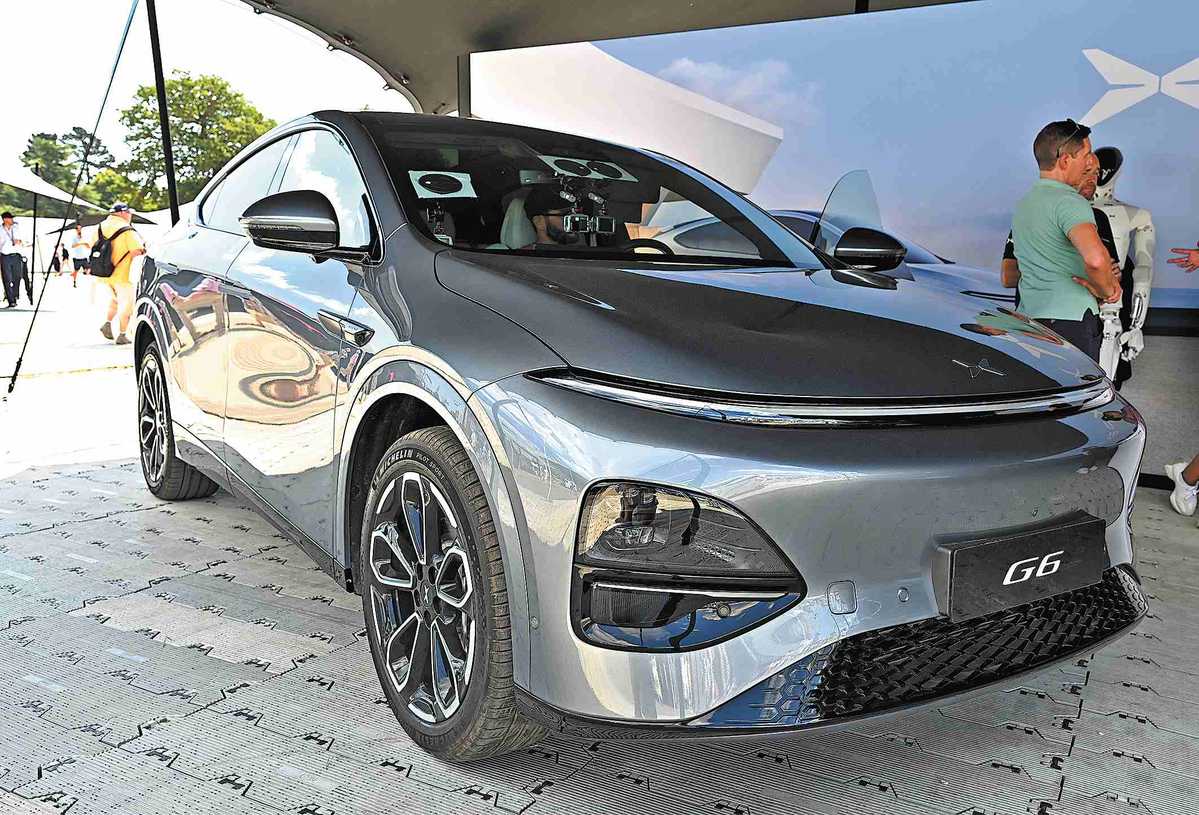Europe fertile ground for Chinese companies


Chinese automakers have shown strong growth in Europe, a region long dominated by German and American brands as the cradle of the global auto industry. Their performance reached a new high in the first half of 2025, even as the overall European market declined.
Data released by global auto research company JATO Dynamics on Wednesday shows European vehicle sales fell 4.4 percent year-on-year to 1.25 million units in June. Meanwhile, Chinese vehicles surged 47.5 percent year-on-year to 65,110 units in the region, with a 5.5 percent market share, a new high.
Year-to-date, registrations of Chinese vehicles surged 91 percent year-on-year, nearly doubling their combined market share to 5.1 percent, just below Mercedes-Benz's 5.2 percent and above Ford's 3.8 percent, JATO reported.
This growth is driven by major Chinese brands including BYD, Jaecoo, Omoda, Leapmotor, and XPeng.
BYD, which sells around 10 models in the region, registered 70,500 units during the first half, jumping 311 percent year-on-year. In June alone, it registered 15,565 units, entering the top-selling 25 brands and outselling Suzuki, MINI and Jeep.
In June, the BYD Seal U and the Volkswagen Tiguan were the top-selling plug-in hybrid vehicles in Europe.
BYD's electric vehicle registrations in the European market surpassed Tesla's for the first time in April. "Although the difference between the two brands' monthly sales totals may be small, the implications are enormous," said Felipe Munoz, a global analyst at JATO Dynamics.
"This is a watershed moment for Europe's car market, particularly when you consider that Tesla has led the European BEV (battery electric vehicle) market for years, while BYD only officially began operations beyond Norway and the Netherlands in late 2022," Munoz added.
Stella Li, executive vice-president of BYD, said the automaker plans to continue investing aggressively outside China, with a particular focus on Europe. The company expects to spend as much as $20 billion in the region over the coming years.
Jaecoo and Omoda, both part of Chery, also made strides, though not primarily through BEVs. Plugin hybrid SUVs accounted for 29 percent of their combined monthly registrations in June, while traditional fuel-powered models made up 63 percent of the total. The Jaecoo 7 was Europe's ninth top-selling plug-in hybrids in June.
China leads globally in both BEVs and plug-in hybrids, Munoz noted. "To gain traction in Europe, its carmakers have responded to the threat posed by tariffs by focusing on other power trains, such as plug-in hybrids, to maintain the momentum behind their global expansion plans," Munoz said.
Leapmotor sold some 8,300 units in June, driven largely by the popularity of its T03 compact and C10 SUV, according to JATO.
Thanks to the partnership with Stellantis, it has launched models in Germany, France, and other European markets, establishing over 450 outlets in the region by the end of March.
Meanwhile, XPeng emerged as the most successful high-end Chinese brand in Europe in the first half of 2025, with 8,338 registrations — 5,615 of which were its G6 SUV.
It was the first Chinese NEV startup to deliver its 10,000th European vehicle in December, just three years after entering the market.
XPeng Chairman and CEO He Xiaopeng said that rapid expansion of overseas business in the next three years is expected to become a significant driver of sales and profit growth.
SAIC Motor, owner of MG marque, outsold Tesla for the first time. The Chinese carmaker increased its volumes by 22 percent to 162,153 units in the first half.
UBS analysis points out that this growth trend will continue, fueled by Chinese automakers' significant cost advantages — honed through intense domestic competition — which allow them to export to Europe with healthy profit margins.




































